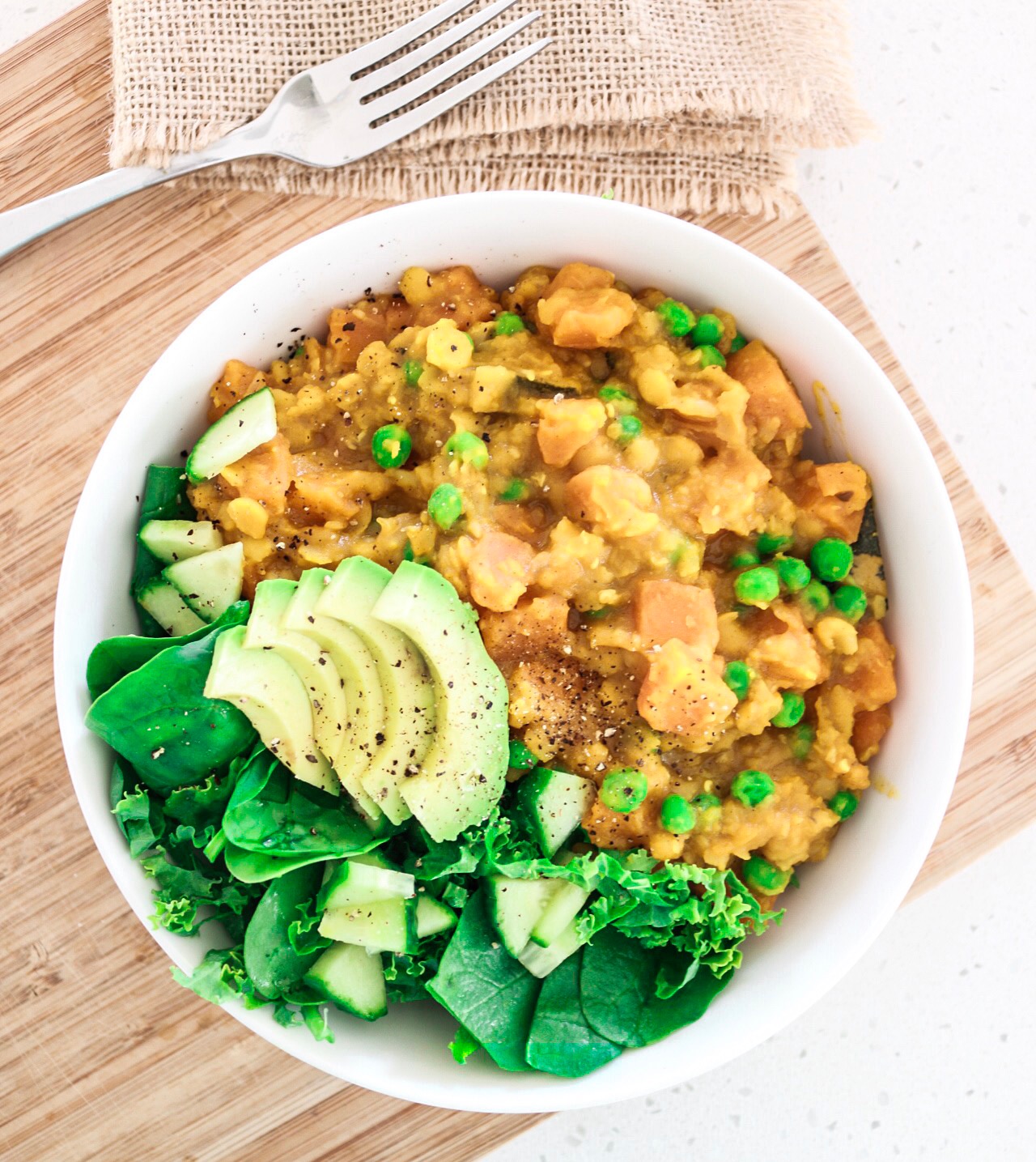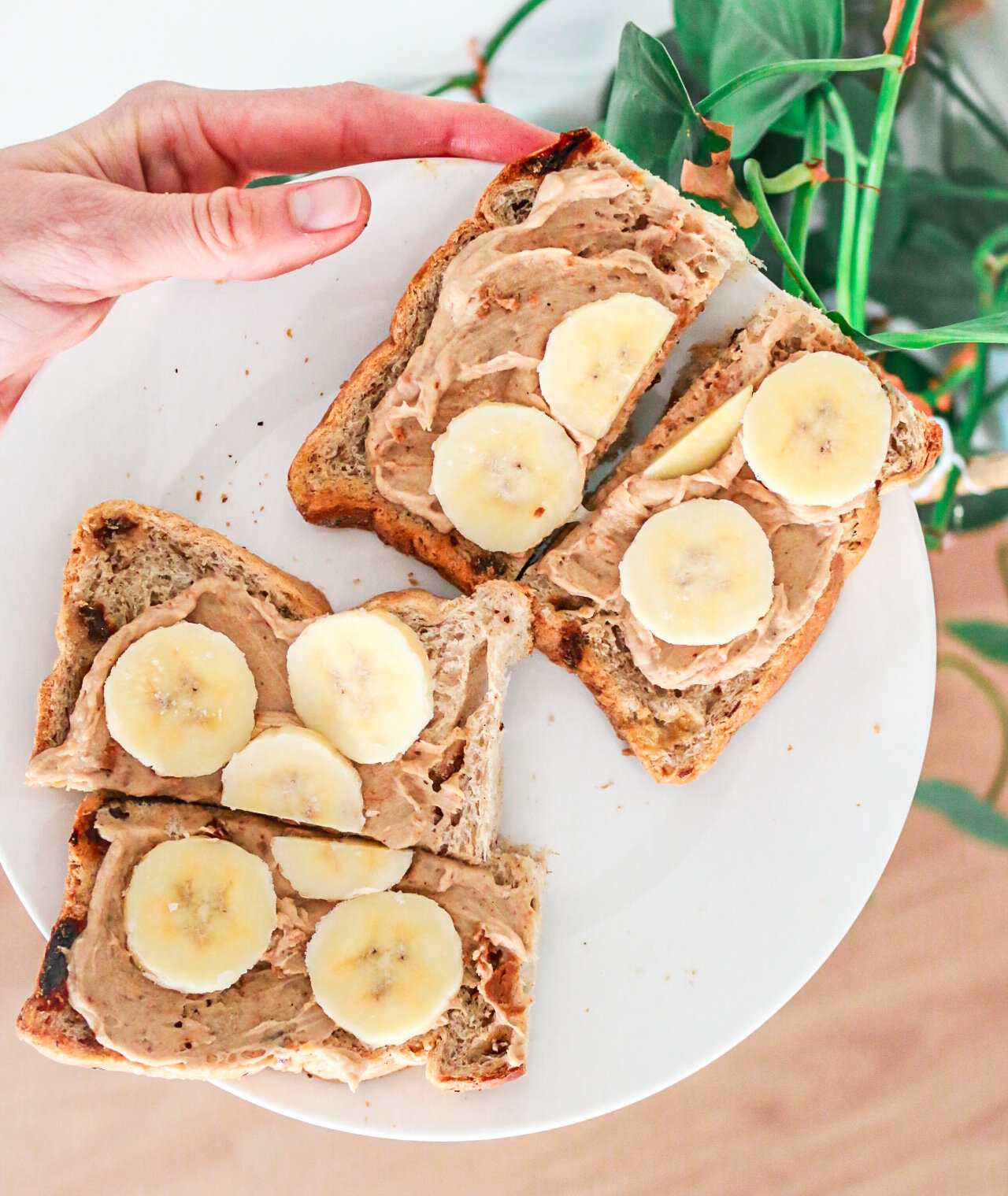Vegan In Recovery From An Eating Disorder?
Alright, this is a big topic. But something both extremely close to my heart and that I get asked about often, so I thought I would share with you my thoughts on this (controversial) topic - based on all of my knowledge, and personal and professional experience.
It’s a fact that many people who are suffering or have suffered from an eating disorder in the past choose to follow a vegan diet, and there are a number of reasons for this, some which are positive and some which are rather negative. But is it possible to recover from an eating disorder, both physically and mentally, while following a vegan diet?
The answer: It depends.
Hear me out…
Veganism is not a diet. Veganism is an ethical choice to do the least possible harm to other living species (animals!), through what you support and consume with your actions and money. Not just choosing not to eat foods derived from animals, such as meat, dairy, fish, eggs and honey, but also choosing not to purchase beauty or cleaning products or clothes and other materials with animal-derived ingredients or that have been tested on animals. This alone has nothing to do with an eating disorder and everything to do with your own personal values and morals as an individual, and choosing to live in a way that matches these!
I fully recognise that veganism is appealing to those with an eating disorder. It places dietary restrictions on you, giving you a set of rules, labels and ‘excuses’ to refuse certain foods. Plant based foods like fruit and vegetables are often ‘safe foods’ for those with eating disorders, and eating a large quantity of these low energy foods can mean that eating disorder sufferers can get away with eating a seemingly ‘normal’ amount of food whilst remaining underweight, and very rigid and disordered in their eating habits and thoughts towards food. If anyone asks, the answer is ‘I’m vegan’. When in all reality this has nothing to do with veganism and everything to do with maintaining the eating disorder and staying in the comfort of food rules and restrictions.
It takes strength to be REAL HONEST with yourself and ask yourself, is my choice to be vegan coming from a place of compassion and love? Or is it coming from a place of restriction and food rules?
The thing is: A vegan diet does not have to be (and should not be!) restrictive. And this is especially important in recovery from an eating disorder. Being vegan is great, as I said, it’s not a ‘diet’. But that’s where the rules need to end. No ‘whole foods plant based vegan’ or ‘high carb low fat vegan’ or ‘starch solution’ or ‘raw vegan’ or ‘raw till 4’ or ‘grain free gluten free sugar free whatever else vegan’ (of course with the exception for diagnosed food allergies and coeliac disease!). These labels ARE diets. And they are contra-indicated for eating disorder recovery, no ifs and buts.
Note: By no means am I saying you can’t eat an abundance whole foods in recovery! But you simply cannot have that ‘whole foods’ label and exclusively only eat whole foods. Eating some processed, less nutritious foods and fear foods is an essential part of recovery. I tried the ‘whole foods only’ way…trust me, I tried. Whilst I was eating enough food, and THOUGHT I had a great relationship with food, I still couldn’t eat out, couldn’t eat any food I didn’t ‘approve of’ or that someone else had made. I was saying no to social situations involving food and bringing my own food to restaurants. That’s not recovery.
Eating disorder recovery is all about just that: Recovering. That means overcoming the rules, fears and disordered behaviours that exist in your mind and are keeping you unwell, physically and mentally. Recovery is about challenging food fears, eating those foods which you haven’t allowed yourself to eat and those which bring on feelings of anxiety and guilt. Learning that these foods will not harm you, that there are no ‘good’ or ‘bad’ foods. Giving yourself permission to eat all of the foods and enjoy them. Learning to eat socially again. Letting go of behaviours, rituals and other disordered habits around food. Rediscovering your love and joy for food and LIFE. And yes, that means eating the vegan burgers and cookies and pizzas, going out to eat at restaurants and eating processed and packaged foods, and all those other scary things for someone with an eating disorder!
Meeting your energy needs for recovery and weight restoration may be slightly more challenging on a vegan diet, due to that nature of plant based foods being more bulky and filling, but again, totally possible. You can easily choose more energy-dense foods, adding extra healthy fats like nut butters, avocado and olive oil, adding extra snacks and desserts, having smoothies, juices and nut milks, adding dressings and sauces, and choosing more processed foods like breads, pastas, wraps and granola bars etc etc. I actually have a post all about gaining weight on a vegan diet!
The thing is, only you can know your intentions behind choosing to be vegan. You cannot (I repeat, you CANNOT) recover from an eating disorder following any kind of diet. But if the choice to be vegan has come from an ethical stand point, and you can still challenge yourself in doing all of the recovery things that I talked about above, then veganism is no hinderance to recovery.
You just have to be real honest with yourself. Your health and recovery, both mental and physical, is the priority. If being vegan is preventing you from truly recovering and achieving freedom and peace with food (all foods), then the best choice for you in this moment is to focus on recovery first. Once you are fully recovered and healthy, then you can go back to thinking about whether veganism is something that aligns with you and that you’d like to pursue.
I also think that, healing or coming from an eating disorder background, the best thing you can do is LET GO of all labels and defining yourself by your food choices. It doesn’t have to be completely black or white and you can still make compassionate, positive, sustainable and healthy choices in your diet and lifestyle without putting a label on it!
Whether you are vegan or not, if you are in recovery it is really important to seek the help of a qualified nutritionist or dietitian who specialises in eating disorders (such as myself), who can give you the support and guidance to truly heal your relationship with food, clear up those myths, fears and rules around food and help you learn to eat in a way that truly supports your body, mind and soul.
I also want to emphasise that if you are need of a higher level of care, such as inpatient or residential treatment, in order to get healthy and recover, please please take that brave step and go. Most of these places don’t accept vegan diets, but as I said, health comes first. You can go back to being vegan once you are healthy. Use that as motivation to recover and to be able make your own decisions regarding your food choices - food choices that come from a place of self love and compassion for both yourself and others, not restriction!
You have to save yourself before you can save the world. But you can totally do both at the same time too!







